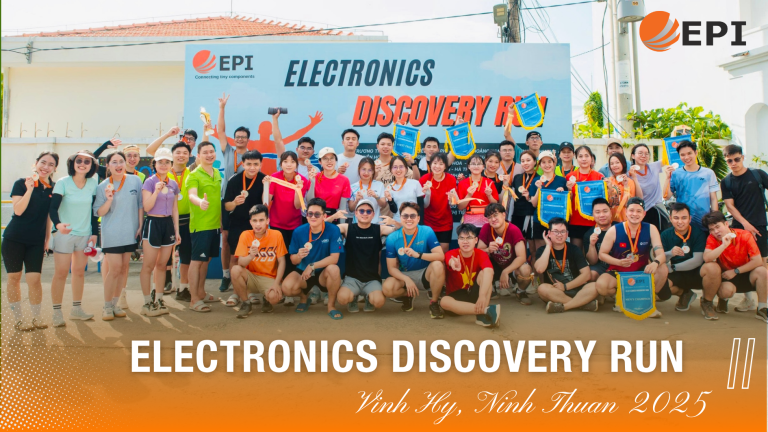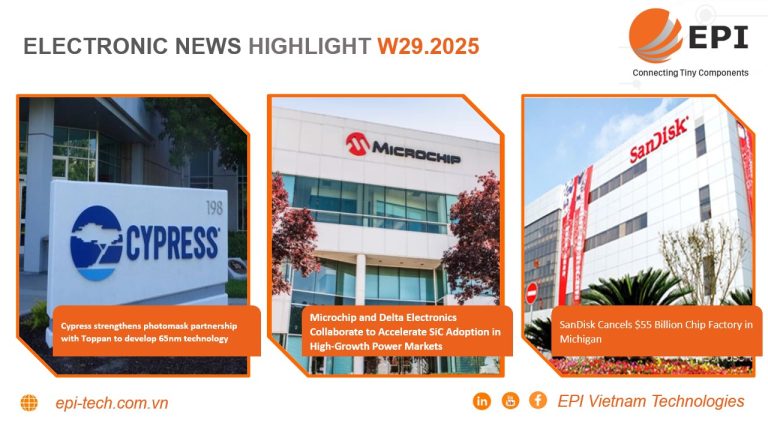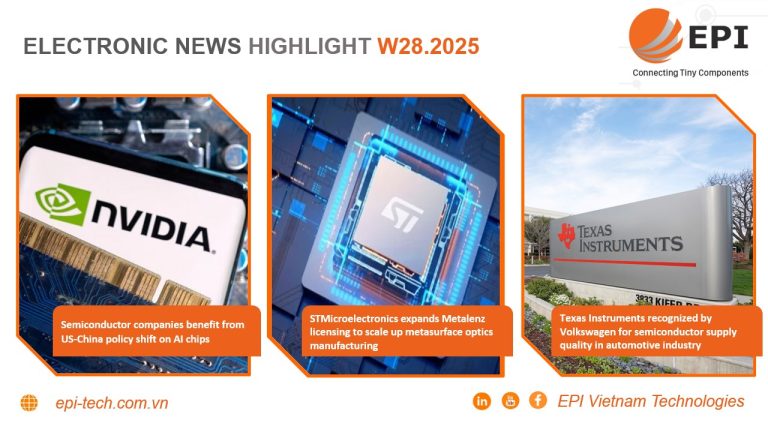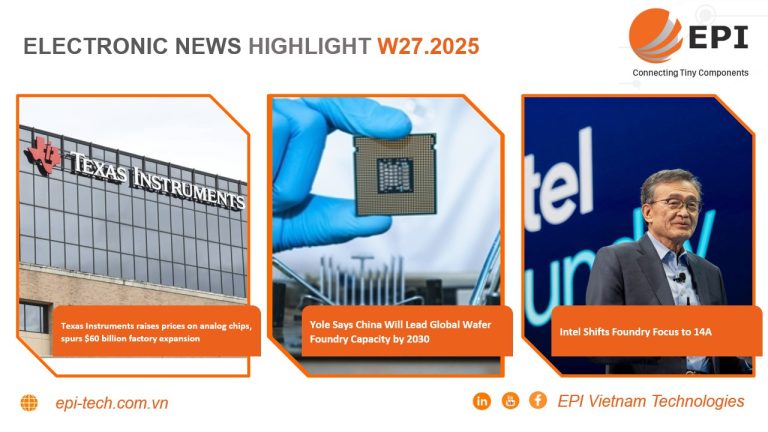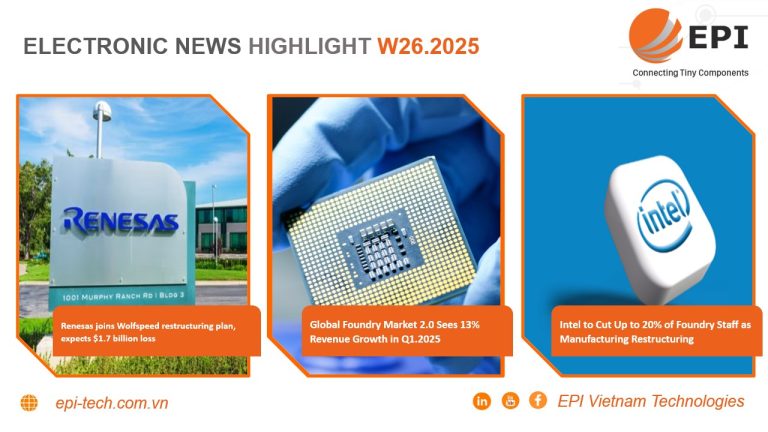ELECTRONIC NEWS HIGHLIGHT W29.2025
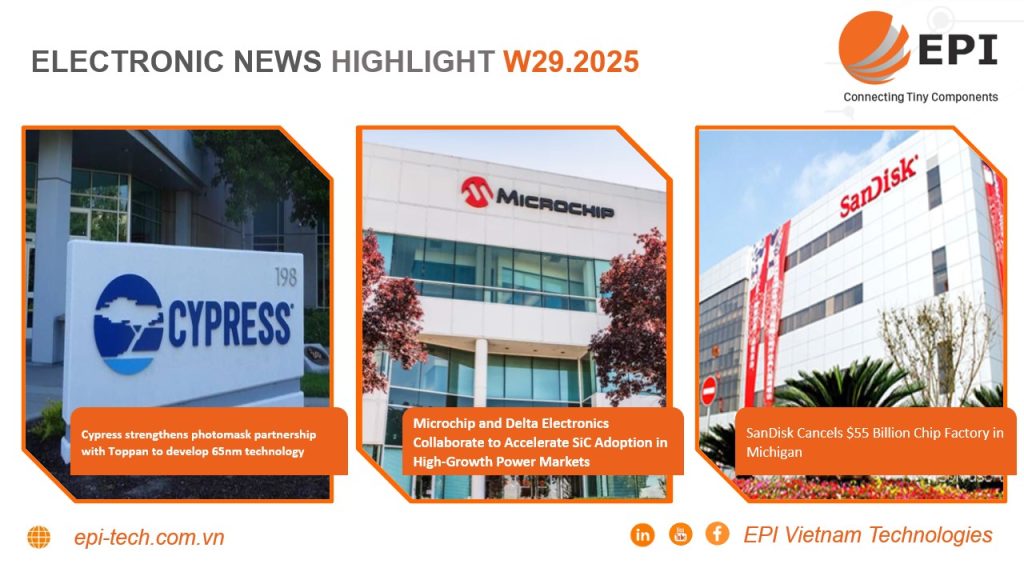
1. Cypress strengthens photomask partnership with Toppan to develop 65nm technology
Cypress Semiconductor Corp. has expanded its partnership with Toppan Photomasks Inc. through a new joint development agreement focused on 65-nanometer photomask technology, along with an extended multi-year supply agreement.
Under the three-year agreement, Toppan’s facility in Round Rock, Texas, will provide the majority of photomasks required for Cypress’s commercial chip manufacturing operations. The expanded partnership builds on an initial agreement signed in 2002, when Toppan was known as DuPont Photomasks.
“Advanced photomasks play a critical role in developing and delivering the technologies our customers around the world demand on a timely basis,” said Shahin Sharifzadeh, executive vice president of manufacturing and plant management at Cypress.
This agreement reflects Cypress’s continued focus on process innovation and supply chain optimization. The collaboration supports Cypress’ efforts to bring high-performance semiconductor products to market and underscores Toppan’s role as a key player in advanced lithography.
Learn more: Cypress strengthens photomask partnership with Toppan to develop 65nm technology
2. Microchip and Delta Electronics Collaborate to Accelerate SiC Adoption in High-Growth Power Markets
Microchip Technology has announced a strategic collaboration with Delta Electronics to integrate Microchip’s mSiC™ products into Delta’s next-generation power systems. The partnership addresses the growing need for efficient and reliable power solutions driven by artificial intelligence and the global electrification trend.
Microchip has more than two decades of experience designing, manufacturing and supporting SiC device applications. The company’s mSiC portfolio includes SiC MOSFETs, diodes and gate drivers, available in standard and custom configurations. The collaboration aims to accelerate Delta’s SiC-based development for applications such as AI servers, mobility, industrial automation and infrastructure.
“SiC is essential for advanced power systems due to its wide band gap characteristics, enabling higher performance and smaller form factors for high voltage applications,” said Clayton Pillion, vice president of Microchip’s High Power Solutions Group. “We are excited to work with Delta Electronics to deliver sustainable and scalable SiC innovations.”
The agreement also includes technical training, collaborative research and development (R&D), and early access to product samples. By combining resources, the companies expect to accelerate product validation and shorten time to market for Delta’s new solutions in key areas.
As a global leader in power management, Delta continues to adopt next-generation technologies to improve energy efficiency. With Microchip’s SiC expertise, Delta aims to accelerate innovation and deliver advanced energy-efficient systems to meet growing global demand.
Learn more: Microchip and Delta Electronics Collaborate to Accelerate SiC Adoption in High-Growth Power Markets
3. SanDisk Cancels $55 Billion Chip Factory in Michigan
SanDisk has pulled the plug on plans to build a $55 billion semiconductor manufacturing facility in Mundy Township, Michigan, dealing a major setback to the state’s ambitions to lead the way in next-generation chipmaking in the United States.
Governor Gretchen Whitmer confirmed the decision in a July 16 statement, after more than a year of secret efforts by state and local officials to secure one of Michigan’s largest-ever manufacturing investments.
The project is expected to bring 10,000 jobs to Genesee County and is seen as a cornerstone of the state’s advanced manufacturing sector. The Flint & Genesee Economic Alliance has raised more than $260 million from the Michigan Economic Development Corporation to acquire and prepare a 1,300-acre site for the plant. Demolition of existing structures is underway through 2025.
But the deal began to fall apart this spring amid stalled federal incentive negotiations and heated political rhetoric surrounding the Biden-backed CHIPS Act. In March, former President Donald Trump denounced the act as “terrible,” arguing that companies were only building factories in the U.S. to avoid tariffs.
Learn more: Microchip and Delta Electronics Collaborate to Accelerate SiC Adoption in High-Growth Power Markets
#ASEAN #AsiaPacific #distributor #Global #electronicdistributor #PCBA



 English
English  Tiếng Việt
Tiếng Việt 





